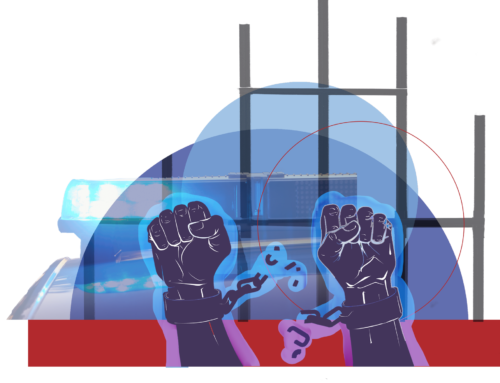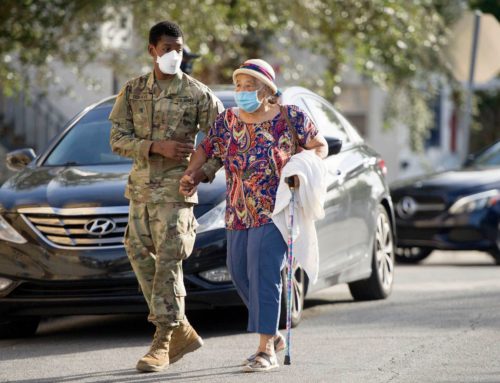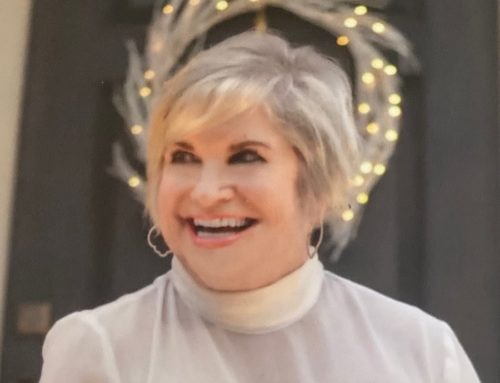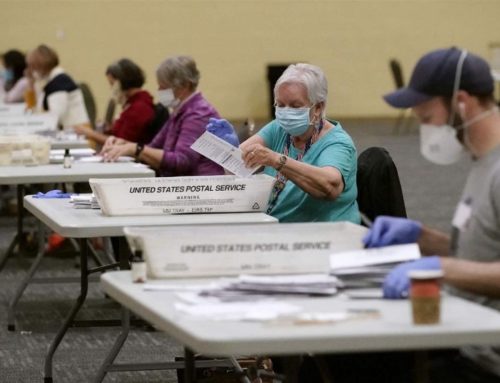Many Black voices across our country continue to remind us that the issues we are facing are not new issues.
The brutal murder of George Floyd has rightly trained our eyes on realized bias and systemic racism in our criminal justice system and a long history of excessive use of force from law enforcement, with particular aggression towards Black Americans.
It is clear that nothing short of a complete transformation is necessary and essential to ensure safety for the people of our country. In order for the police to be successful in protecting our communities, they must have the support, confidence and trust of the people they seek to serve — which far too many places haven’t had in a long time. In order for there to be true public safety, we need to invest more on front-end services and less on back-end law enforcement and prisons.
As we repeatedly face these issues, we must push the debate beyond ending police violence. We must reconstruct the concept of use of force. We must instill peer intervention strategies in law enforcement agencies big and small. We can no longer ask police to handle the failures of our social and educational systems. We must reimagine modern policing writ large, including reconstructing the laws and policies in our criminal justice system that unfortunately were designed in large part to oppress rather than assist and support the communities they serve.
Congress has begun introducing federal measures this week, the depth of which we’ve never seen before at the federal level, and perhaps most importantly, also encourages changes at the state and local level. Organizations like Leadership Conference of Civil and Human Rights and Campaign Zero are outlining very specific actions local governments and police departments can take without federal intervention. As we know from our work with the New Orleans Police Department, these sorts of overhauls take time and are difficult, but they are indeed possible.
Without the will to change police culture from within, though, overhauls of federal policy alone cannot bridge the divide between police and community. Like so many issues involving systemic racism, real lasting change requires hard work and courage. So let’s dig deep and muster the courage to work together to reimagine what public safety looks like.
Stay tuned for more details about how we plan to lend our thinking to this movement.
Mitch Landrieu
Founder and President
Recent News & Commentary
CBS News: Congress crafts police reform legislation in response to police violence
In widespread protests across the country following the killing of George Floyd, demonstrators are demanding that Congress take action to make police departments more accountable & to curb racial violence.
Washington Post: Democrats unveil broad police reform bill, pledge to transform law enforcement
Congressional Democrats unveiled The Justice in Policing Act of 2020, which would ban chokeholds, establish a national database to track police misconduct and prohibit certain no-knock warrants, among a wide array of steps.
The Guardian: What does ‘defund the police’ mean? The rallying cry sweeping the US — explained
Activists have long advocated taking money from police and reinvesting it in services. The idea is now seeing a wave of support.
Facing South: The bitter history behind the highways occupied by protesters
Demonstrators’ presence on highways whose very construction displaced and segregated black communities is a reminder that while the ongoing nationwide demonstrations were spurred by the deaths of Floyd and others at the hands of police, the injustices they protest have a deep history that’s embedded in the very fabric of the cities where residents are now demanding justice.
Washington Post: George Floyd’s death could have been prevented if we had a police culture of intervention
Even as we demand accountability for the officer accused of killing George Floyd, we should be equally focused on preventing needless police killings in the future.
Axios: Some call for fewer police, even as streets erupt
“Defund the police” isn’t just a slogan on a protester’s sign — it’s a political movement to relieve cops of responsibility for managing intractable social problems and shift spending to agencies that are better equipped to handle them.
City Lab: How Cities Offload the Cost of Police Brutality
The uprising in Minneapolis that started in response to the police killing of George Floyd will leave the city with millions of dollars of damage in its wake. The city may be poised to spend millions more on the legal costs associated with the trials of at least one of the officers responsible for Floyd’s death, especially if civil lawsuits gain traction.
Washington Post: What would Martin Luther King Jr. say about the current civil unrest?
America’s unfolding national racial crisis — the product of white supremacy, a virus far deadlier than the coronavirus — has many people wondering: “What would Martin Luther King Jr. do” in the face of widespread racial oppression, massive nationwide protests and presidential leadership that is openly hostile to the very idea of black dignity and citizenship?
Resources
An Advocacy Toolkit for Fair, Safe, and Effective Community Policing
The report, featuring groundbreaking tools to increase trust, fairness, justice, and mutual respect between police departments and the communities they serve, offers community-centered policy solutions to equip communities and police departments with best practices and recommendations for adopting 21st century policing models, including tools for advocacy.
#8CantWait
Research shows more restrictive use of force policies can reduce killings by police and save lives. Tell your city to adopt all eight of these policies.
NAACP Legal Defense and Educational Fund’s Policing Reform Demands
The NAACP Legal Defense and Educational Fund, Inc. released demands for policing reform to federal elected officials, governors, mayors, and police chiefs. The recent killings of Black Americans, including Ahmaud Arbery, Breonna Taylor, and George Floyd, by former and current police officers have further exposed the need for immediate police accountability and reforms.
Art That Confronts and Challenges Racism: Start Here
What fills us up in disquieting times? What galvanizes through trauma? As the world endured months of lockdown because of the coronavirus pandemic, artists put forth works that comfort, that remind us of our regular days and nights at the theater and the gallery, of the bonhomie of a concert hall, the warm glow of a weekend movie. Here, writers recommend other works that illuminate and confront racism, tracing a path, thorny as it may be, forward.




